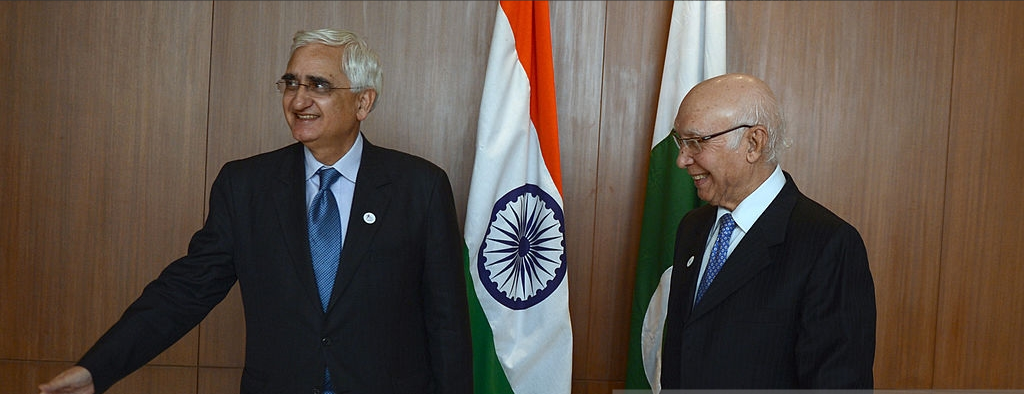
Voices this Week draws together published material on an important strategic issue in South Asia. This week highlights analysis on Indian foreign policy – in particular regarding the future of India-Pakistan relations – under the leadership of Prime-Minister-elect Narendra Modi.
Brookings’ Tanvi Madan writes on “A Modi Foreign Policy: The Knowns and Unknowns,” beginning with a caveat that “first and foremost, it is important to say that there is a lot we don’t know…. [and that] the structural and ideological basis of Indian foreign policy and the existence of a permanent bureaucracy mean that there will be continuity in many areas.”
She terms the future of India-Pakistan relations as:
“perhaps the biggest wild card. It is not known whether Modi will essentially take the line that India needs stability in its neighborhood to ensure economic growth and development, which is the primary and perhaps sole objective for which he will have a clear public mandate…. There’s a possibility that Modi will take a more hawkish line instead. This is especially likely if, in the first six months or so of his government, there is a major terrorist attack in India or on Indians abroad that can be traced to elements in Pakistan.”
Two pieces in The Hindu assess the Prime Minister-elect’s invitation to regional leaders to attend his swearing-in ceremony on Monday. An editorial presents three messages the invitations send to three distinct audiences: Pakistan, the region, and domestic audiences. The piece asserts that “while dressed up as an outreach to all SAARC leaders, the invitation was clearly meant primarily for Prime Minister Nawaz Sharif of Pakistan,” in part as an olive branch, but also as “an assertion that Pakistan now has to deal with a powerful new leader in New Delhi with a decisive mandate, and that the onus is now on Pakistan to show that it wants friendly ties.” The piece continues:
“The second clear message is to South Asia and the larger region, including China, that under the new leadership India intends to be proactively engaged with the region and… will not let the initiative slip from New Delhi’s hands, whether in the Maldives, Sri Lanka, Bangladesh or Nepal. The third message is meant for regional parties in Tamil Nadu and in West Bengal that, allies or not, they can no longer dictate terms on foreign policy.”
In an op-ed in the same paper, Suhasini Haidar contends:
“By inviting the South Asian Association for Regional Cooperation (SAARC) leaders to his swearing-in ceremony, Prime Minister-designate Narendra Modi has sent out a powerful message on foreign policy. After an electoral campaign where “Candidate” Modi had made several disquieting statements about the region — from criticising Bangladesh for its treatment of the Hindu minority and on illegal immigrants, to threatening Pakistan over the export of terror and firing at the Line of Control (LoC), it would seem as if Prime Minister-designate Modi wants to start on a fresh page. After all, the irony would be lost on none; that after criticising caretaker Prime Minister Manmohan Singh for “serving biryani to the former Pakistan PM,” Mr. Modi will now preside over his first banquet in office to which he has invited the Pakistan Prime Minister, Nawaz Sharif. To then give the South Asian neighbourhood such importance right at the start of his term is indeed a significant step.”
***
Image: Raveendran-AFP, Getty